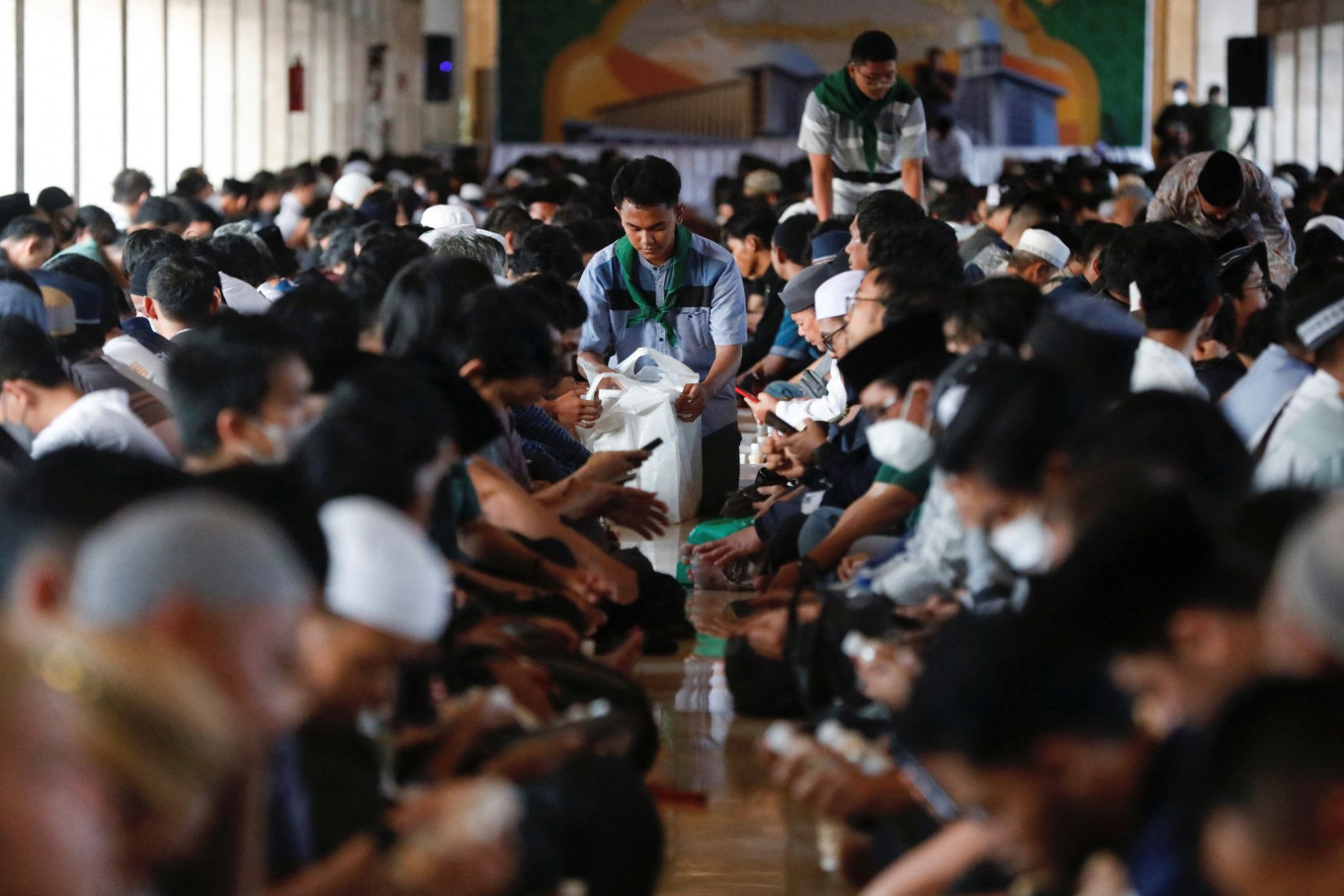Popular Reads
Top Results
Can't find what you're looking for?
View all search resultsPopular Reads
Top Results
Can't find what you're looking for?
View all search resultsIf you're Muslim and care about climate change, read this
Climate change has at times been seen as a Western, capitalist, and colonialist problem, reducing Muslims’ readiness to act.
Change text size
Gift Premium Articles
to Anyone
R
amadan is here. Billions of Muslims worldwide abstain from food and water from dawn to sunset. As we experience a month believed to be blessed in Islam and in which good deeds are emphatically encouraged, a vast majority will opt to simultaneously complete the third pillar of the Islamic faith by distributing their annual zakat.
Briefly, zakat is a mandatory donation of 2.5 percent of a person’s annual savings to those in need, with the goal of alleviating inequalities. It applies to Muslims who hold certain assets such as cash, gold, and investments, and it can be paid to eight categories of recipients, including the poor, the needy, and those in debt.
Much of the zakat fund is managed informally, so it’s hard to say exactly how much we’re talking about. One estimate places the global zakat collection between US$200 billion and $1 trillion. In the United States, a 2022 study by Indiana University estimated that the average Muslim American household donated $2,070 of zakat to humanitarian charities in 2021, amounting to a total of $1.8 billion. It’s safe to say that zakat represents a vast pool of money.
In context, the total climate finance for low- and middle-income countries through multinational development banks (such as The World Bank and Asian Development Bank) in 2021 was $50.67 billion.
Traditionally, zakat has been used to cover medical needs and education; buy food, water, and clothing; sustain orphanages; and help people who are struck by natural disasters. For instance, a significant portion of the zakat this year is expected to be directed—and rightly so—to the disaster relief work in Turkey and Syria following the devastating February earthquakes.
Such assistance will always be critical. However, it does not solve the underlying problems. For lasting change, zakat should be targeted to address systemic causes of suffering—including climate change.
Climate change is exacerbating inequality and poverty. The worst impacted are already-impoverished communities in climate hotspots in South Asia, sub-Saharan Africa, and small island developing countries. Last year, 43,000 people died in Somalia due to ongoing drought intensified by climate change. In Pakistan and Nigeria, devastating floods killed thousands and caused billions of dollars of economic damage.
As Muslims around the world decide how to allocate their zakat, they should consider options that alleviate poverty, improve food and water security, and address energy poverty while simultaneously addressing climate change. Across low-and middle-income countries, zakat can be an opportunity to fund solutions focused on improving food and water security and addressing energy poverty while building resilience to climate change. For example, in Indonesia, the zakat fund was used to finance a $350,000 hydropower project that is providing electricity to 4,000 households.
Unlocking zakat donations for this type of project is not easy. It will require enhancing Muslims’ willingness to act, developing zakat-eligible projects, and increasing transnational coordination.
First, Muslims must view themselves as part of the climate solution. In 2015, Islamic leaders issued a clarion call to phase out greenhouse emissions by 2050. Others have argued that addressing climate change is a religious obligation.
However, climate change has at times been seen as a Western, capitalist, and colonialist problem, reducing Muslims’ readiness to act. In oil-rich Gulf countries whose economy has relied on the fossil fuel industry, individuals are more likely to feel that their government is already doing as much as can reasonably be expected. In the US, Muslims tend to believe that government regulation should solve it.
Second, zakat distribution is subjected to strict rulings, and relatively few climate projects are eligible For example, companies that sell solar panels or clean cookstoves cannot receive it, but their customers, if poor, can.
Lastly, transnational coordination must be improved so the source and recipient can connect. Much zakat is collected in wealthy Gulf states, Malaysia, Indonesia, Brunei, and Western countries, while the biggest needs are in sub-Saharan Africa and South Asia.
The good news is that these challenges can be overcome.
The recent devastating floods, droughts, and heatwaves in several Muslim-majority countries have clarified the connection between poverty and climate. In addition, a growing field of Islamic environmentalism led by Muslim scientists, religious leaders, and political actors has been progressively paving the way for action.
Major Islamic humanitarian organizations are committed to addressing climate change. However, they need to develop climate projects that are zakat-eligible. Charity organizations disseminating zakat funds should collaborate with local governments, international development actors, and climate organizations to develop projects that address poverty, improve resilience, and contribute to climate action.
Such projects could entail installing solar water pumps, paying off the debts for (or funding) solar panels and clean cooking, helping farmers buy drought-resilient seeds, and transitioning to improved farming practices such as agroforestry and no-till farming.
The window for climate action is rapidly shrinking, and climate actions in low-and middle-income countries are woefully underfunded. Zakat represents a vital resource that can fill this gap in improving people’s lives while addressing climate change.
***
Yusuf Jameel is an associate data scientist at Project Drawdown. Gaelle Perrier is a research assistant at the University of Utah.











